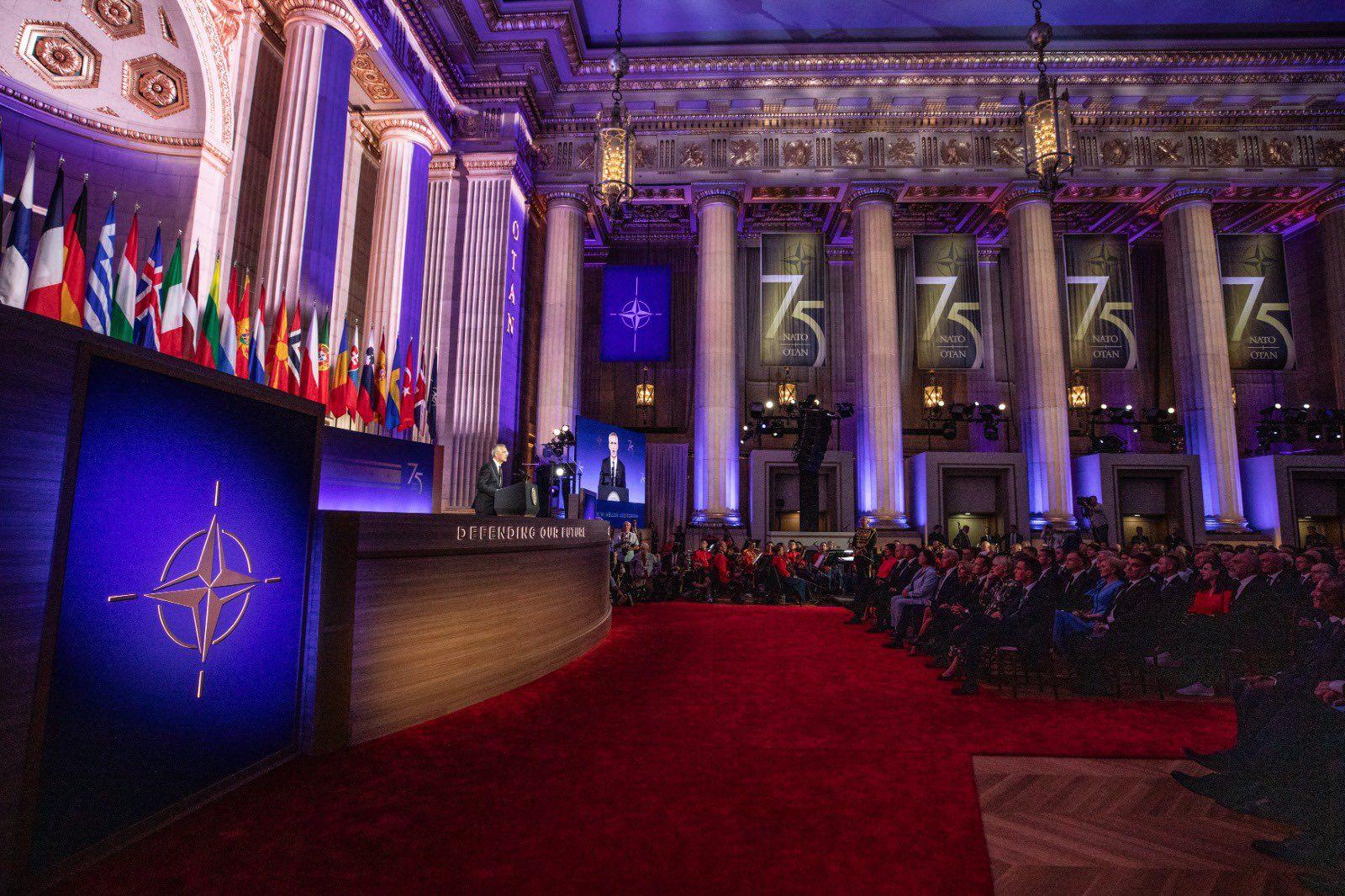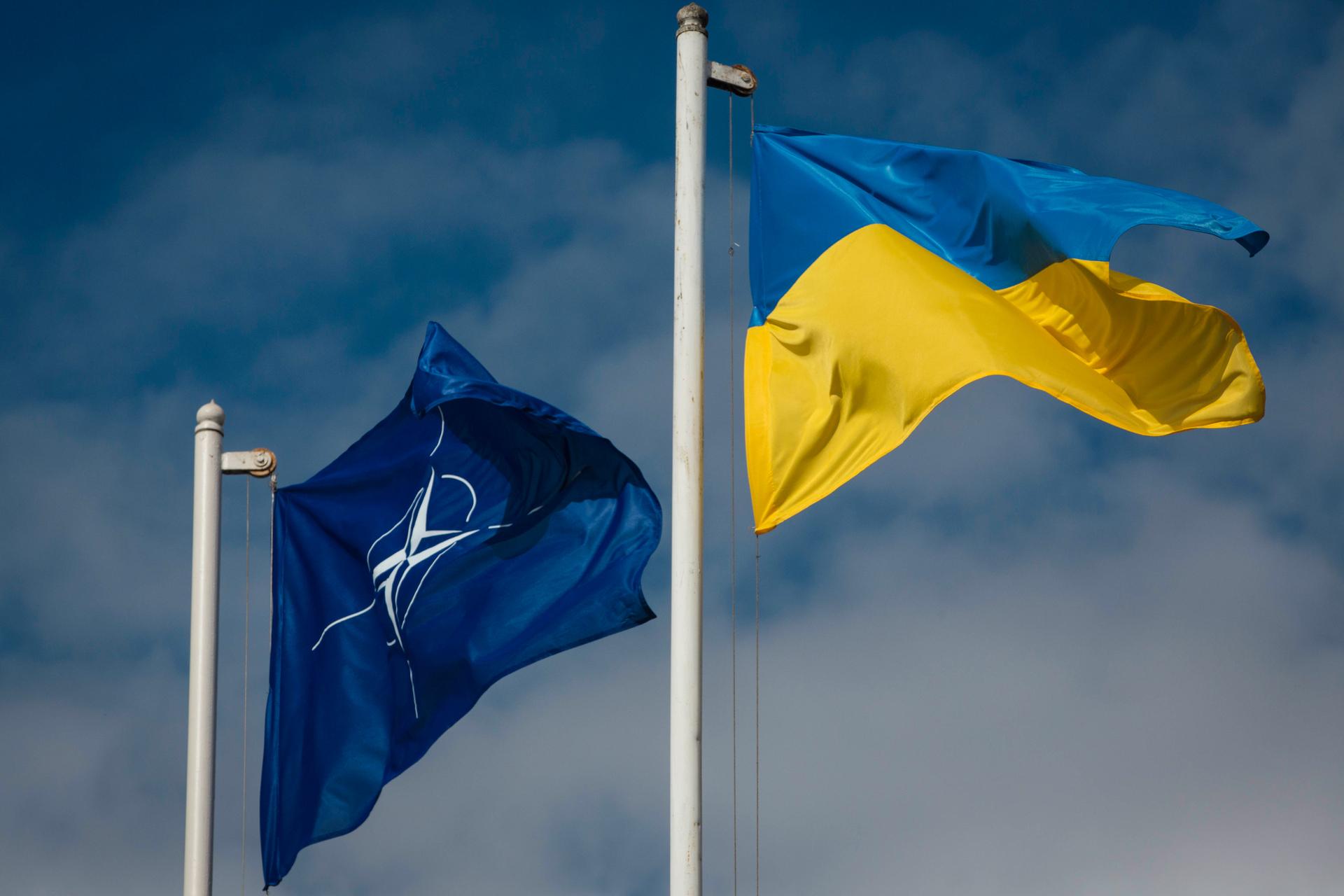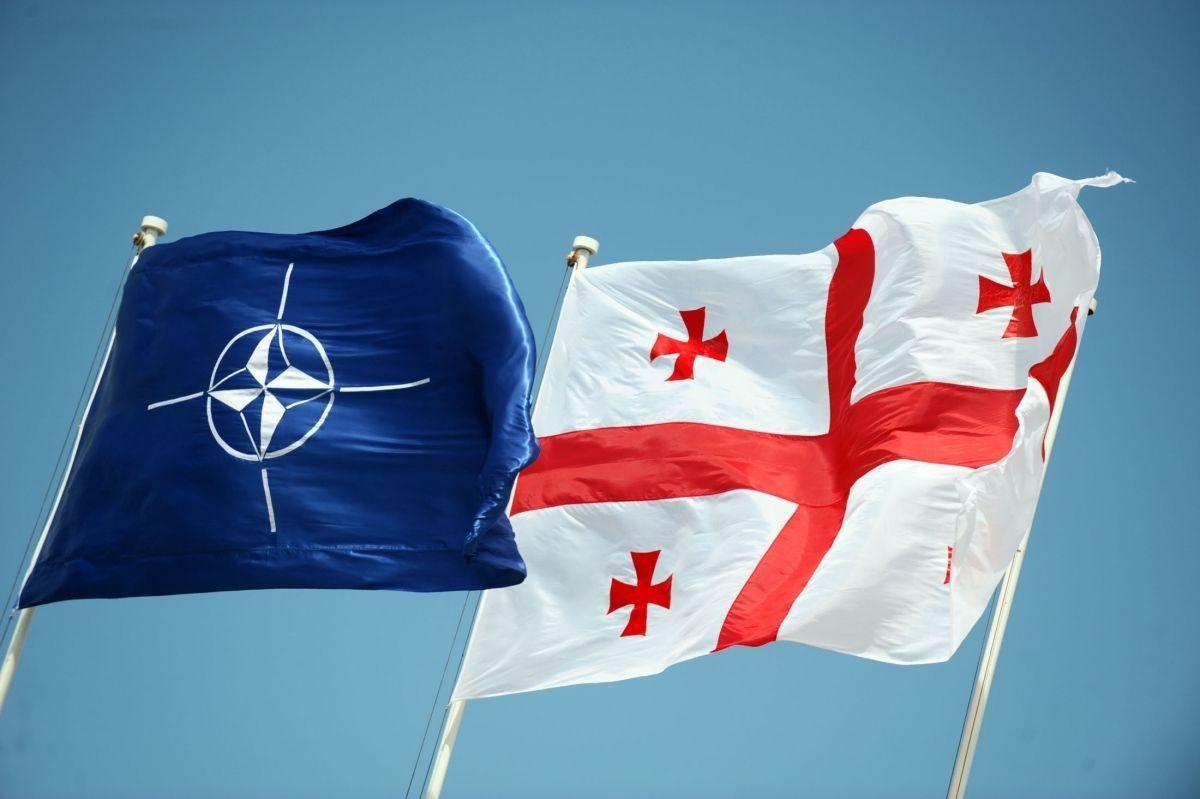NATO's strategic ballet Ukraine centre stage, Georgia in the wings
The NATO anniversary summit commenced with President Joe Biden's keynote address, squarely focused on NATO's support for Ukraine. Commitments were made, promises reiterated, including the roadmap from "a firm bridge for Kyiv" towards reaffirming allies' commitment to Ukraine's NATO membership (NATO Secretary General Jens Stoltenberg). Yet, the pressing question remains: what lies ahead? How should Ukraine proceed, and what can we anticipate next?
Biden's speech reiterated the call to form a "global coalition to counter Russia" and ensure Kyiv receives "adequate defence capabilities." However, after 2.5 years of conflict in Ukraine, the question persists: what comes next? Ahead of the summit, Stoltenberg hinted at a potential decade-long wait for Kyiv's NATO membership, raising doubts about whether this timeline will suffice. If not, will more defence weaponry be the solution?

A compelling dialogue on this issue unfolded between an American journalist and analyst on National Public Radio (NPR), broadcasting news across 1,000 US radio stations. They highlighted Biden's main message of bolstering NATO's resilience against Russian influence in Ukraine. Yet, they underscored the importance of "institutionalizing support for Ukraine" to shield it from shifts in US presidential administrations. This aims to ensure that assistance to Ukraine remains consistent and resilient beyond electoral cycles.
The discussion participants characterized the Washington administration's plans as aimed at "demonstrating the president's sanity to concerned allies" (even if Biden reads his speech using a teleprompter). Supporting this view, a BBC editorial stressed that the three-day summit in Washington is neither a celebration of NATO's 75th anniversary nor a definitive solution to the alliance's future challenges. It is a broad-ranging discussion during which Biden must demonstrate his ongoing ability to lead.
Moving forward, let's consider Stoltenberg's remarks on the bloc format of the new world order. His statements about Iran, North Korea, and China "hoping for NATO's defeat" and their support for "aggressive conflict" leave no room for alternative interpretations. He once again highlighted the contrast between Eastern "authoritarian regimes" and Western liberalism, which champions "freedom and democracy." However, in response, China's Foreign Ministry cautioned that NATO should not cite their country's name "to justify its expansion into the Asia-Pacific region in attempts to destabilize the overall situation."

Turning the page, we encounter the perspective of former U.S. Ambassador to NATO, Ivo Daalder, as he reinterprets the unfolding events on the Russian-Ukrainian front. Daalder emphatically asserts that Ukraine must bolster its presence on the front lines, stressing the need to mobilize individuals aged 18 and older. He remains indifferent to the future implications for Ukraine's population, already burdened by severe demographic challenges. In his view, amidst "an existential moment for both Ukraine and NATO," prioritizing certain alliance issues justifies the sacrifice of Ukrainian youth. He notably questions, "We only recently secured all these Patriot systems [for Ukraine]. Why not do so six months earlier?"
Interesting, but who will respond to this? Or for this? In this context, it is worth noting that, in the context illuminated above, a number of experts recalled Georgia in 2008, which, relying on external support in its then confrontation with Russia, found itself faced with the fact of losing its historical territories. By the way, in the aspect of the disclosed information on the suspension of the country's integration into the EU, the reason for this step on the part of the European Union was defined by the Secretary General of the ruling Georgian Dream party Kaha Kaladze as the Georgian authorities' failure to "use its people in the interests of other states, as is happening in Ukraine." According to him, their "policy is aimed at Georgia becoming a free, independent, sovereign state."
As a result, on July 10, a new socio-political movement "Unified Neutral Georgia" was introduced in Tbilisi, which opposes the country's integration into the EU and NATO. The leader of the movement, Vato Shakarishvili, outlined that declaring "Eurointegration as a religion" in the country is a "crime against the Georgian people." Regarding NATO, he stated that although the alliance "does not yet have the status of a religion," the guilt of the authorities is manifested in making integration into this structure "a constitutional task." As Shakarishvili emphasized, "even formally, embedding such a thing in the country's basic law is complete nonsense, because turning NATO integration into a constitutional dogma is unacceptable."

Perhaps some might consider the statements by the Georgian politician exaggerated. However, returning to the topic of Ukraine, how should we interpret reports from various media outlets about Biden's initial "serious reluctance" to include in the summit's final document a formulation stating the "irreversibility" of Ukraine's accession process to the alliance? While the declaration adopted by the participants unequivocally expresses NATO's support for Ukraine on its "irreversible path towards full Euro-Atlantic integration, including NATO membership," the same document clearly states that NATO will "be able to invite Ukraine to join the alliance when all allies agree and conditions are met."
So there you have it. Everything is as usual. Initially, it sounded like a definitive "Yes." However, upon closer inspection, it revealed itself as an endless ellipsis, leaving one with the lingering phrase "wait for an answer."
By Teymur Atayev
The views and opinions expressed by guest columnists in their op-eds may differ from and do not necessarily reflect the views of the editorial staff.








